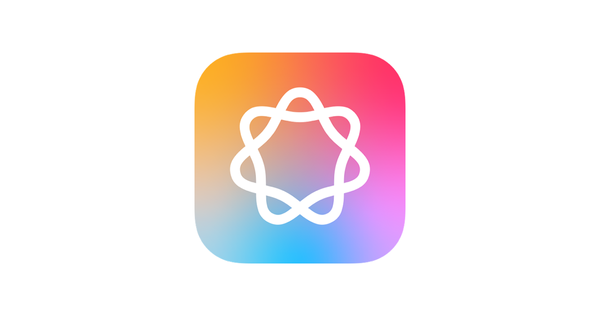A new marketing era begins
The sun rises on a changed discipline.

Hey folks, it's been a while! Sorry. I took a break in June and started a new job in July – both have kept me busy.
I've been thinking a lot about the future. Those of you who have been around here for a while might know I write about AI and spatial computing and how big (and sometimes small) tech are messaging and branding these technologies.
Today, I wanted to share something I've been scratching around with for a while: the impact of these technologies on marketing itself.
In short, I think we are definitely entering a new era of marketing (cliché alert – but bear with me!).
I see marketing in broadly three phases, now. There might be more. I'm sharing this in a fairly rough format because I'd like to hear what you think (just reply to this email if you're reading there, or @ me on Bluesky).
Let's go.
Phase 1: Brand and sales
Pre-WWI → 90s-00s
This is the beginning of marketing.
This is where conglomerates like P&G and Unilever grew up: the playbook is effectively build a brand and let it sell itself. Boost sales tactically, little and often, with promotions.
Brands could only control point of sale by making deals with retailers or by selling direct to consumer. But that was expensive and operationally difficult, so often they just didn't.
They controlled the message around their product using media they could buy: billboards, TV spots, magazine ads and their job was to increase the likelihood that someone would buy.
Marketing departments were staffed with brand managers, copywriters, and creative directors. Most creative output and media buying, though, did not come from the brand itself; agencies did this work on their behalf.
Phase 2: Internet, social and direct relationships
2000s → 2025
This is where marketing becomes measurable (measurable ≠ more effective, but that's another story).
Social platforms like Facebook show brands exactly where their marketing spend is most 'efficiently' spent.
Media availability explodes as more people get online (e.g. Search Ads, Organic and Paid Social, CRM).
New touch points for products emerge as customers start to use websites and download apps in a major way. Product and marketing blur sometimes, especially for digital products.
Initially, brand marketing is declared dead as it looks like all marketing can be funnelled to Meta, Google etc. But, towards the end of this period, brand makes a renaissance as digital brands discover mental and physical availability is material to driving long term growth, and scepticism begins to grow for paid social's effectiveness.
Marketing departments consist of a Creative Studio, Performance Marketing, CRM, Product, Brand Marketing and PR. Generally there are agency relationships where creative is made and media is bought, but towards the end of this period there’s a big trend towards in-housing creative.
Phase 3: AI (and maybe spatial computing...?)
2025 → ?
So this is the beginning of the new marketing era. Here's what could happen:
Platforms like Meta, Google, and adtech aggregators begin to offer a comprehensive set of marketing products that let marketers build and tailor a customer's journey. Or (preferably) – new marketing-stack companies emerge to do this job.
They can build, test and optimise creative, target in-market buyers and measure success all in one platform.
CRM/customer marketing is handled by AI – it generates customer messaging bespoke to a single user, at the right time, on the platform they’re most likely to engage on. It understands the perfect lifecycle management framework for each customer and optimises itself.
Marketers generate strategic objectives and brief the aggregators/marketing stack companies to do the work.
Marketing departments switch focus from “hands-on doers” to “nitpick approvers”; humans review AI-built strategies and tactics throughout, give feedback and manage a roster of “AI Agencies”.
Tactical “performance marketing” roles shift from actively managing ads across platforms to more holistic product marketing roles that have a research and strategic focus. Product Marketers manage multiple AI creative studios and media buyers.
Creative agencies become high-end, prestige options for marketers who prefer an “artisanal” approach/want to make a creative point about humans doing human creative work.
What do you reckon?
I bet I'm missing a bunch of things.
Maybe I'm being too simplistic: do we really think AI Agencies will be a thing that marketers trust any time soon, for instance? Am I leaning too far into an agentic-looking future? I think maybe I am, and we'll want more humans in the loop in more places, in reality.
Or perhaps I'm missing all the new channels that'll come from the AI era. I've said nothing of how we'll advertise on LLM chatbots, for example, and how TV viewership, though still vital for driving brand awareness for big brands today, has already fundamentally morphed into Netflix and TikTok.
Maybe I've mischaracterised the era we're leaving. I take a fairly negative slant on paid social, I think, but you cannot deny the amount of value that has created – Facebook literally built the App Store.
Give me your points of view on things I've missed and overtime, maybe we can build a consensus together on what this new era might look like for marketers, and help us prep for what comes next.





